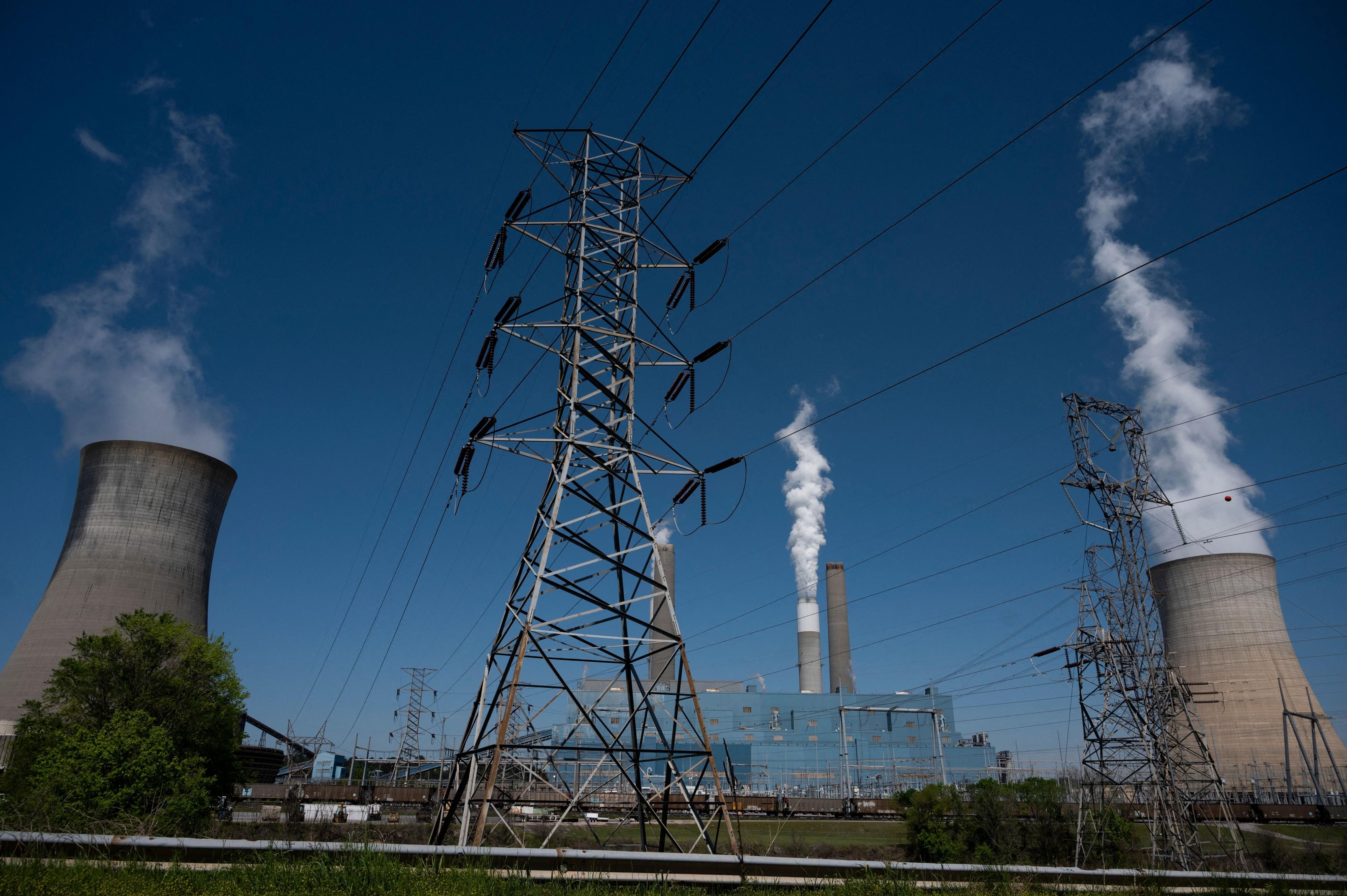
As scientists continue to express alarm about rising temperatures, a climate campaign launched Tuesday spotlights 30 corporations using the U.S. and European bond markets to drive planet-heating coal, gas, and oil expansion.
"As bank lending for coal has tightened, the bond market remains a safe haven for fossil fuel companies to fund expansion."
The Toxic Bonds initiative found that the targeted fossil fuel giants—including Adani Group, BP, Chevron, China National Offshore Oil Corporation (CNOOC), ExxonMobil, Gazprom, Korea Electric Power Corporation (KEPCO), Saudi Aramco, Shell, and TotalEnergies—collectively have over $491 billion in bonds that are outstanding.
The groups behind the campaign converted European bonds to U.S. dollars for all of their figures, which were updated as of February. Key findings include that ExxonMobil and TotalEnergies respectively have over $41 billion and nearly $50 billion in bonds outstanding.
"As bank lending for coal has tightened, the bond market remains a safe haven for fossil fuel companies to fund expansion," said Nick Haines at SumOfUs. "Dirty energy companies are using the corporate bond market as the back door to secure large amounts of cash for expansion projects."
"This has so far received too little scrutiny," he added. "The Toxic Bonds initiative seeks to bring advocates together to knock out bonds as a pillar of support for fossil fuel expansion."
Along with SumOfUs, the coalition includes AnsvarligFremtid, Both ENDS, Mellemfolkeligt Samvirke, Reclaim Finance, Solutions for Our Climate, the Sunrise Project, and Urgewald.
"No one has yet looked at the sheer amount of money that has been going via bonds into companies that have big expansion plans across coal, oil, and gas," Alice Delemare Tangpuori, senior bonds strategist at the Sunrise Project, told Bloomberg. "If you zoom in on the fossil fuel sector and look at just the companies with the biggest expansion plans, particularly for coal, it shows they are heavily reliant on bonds," she said.
A Sunrise Project analysis of the Global Coal Exit List and data from corporate financial statements revealed that coal companies with the biggest expansion plans raise 2.5 times more capital through bond issuance than bank loans, and bonds provide the most financial support for the sector in China and India.
India-based Adani—which, according to the initiative, has over $8 billion in bonds outstanding—is currently building the largest coal mine in Australian history.
"Despite the urgency of the climate crisis the Adani Group is planning to double its coal-burning power capacity and either own or operate several new thermal coal mines, including the disastrous Carmichael coal project in Australia," Market Forces campaigner Pablo Brait said Tuesday.
"The Carmichael mine is being 'self-funded' by Adani, mainly via inter-company loans," he continued. "So while banks and other financiers may refuse to fund projects such as Carmichael directly, the significant amounts they help Adani raise via bond issues are freeing up the capital which could then flow to Adani's new fossil fuel projects."
KEPCO—which is developing coal-fired power plants in Indonesia, South Korea, and Vietnam—already has $2.3 billion in bonds outstanding and reportedly issued $8 billion in bonds during the first quarter of this year, according to the campaign.
Noting that "KEPCO has continued to issue bonds to finance coal power projects," Joojin Kim, managing director at the Seoul-based Solutions for Our Climate, said that "not only does this exacerbate the climate crisis, but it also exposes the company to highly volatile coal assets which are quickly becoming stranded."
"The company's continued bond issuance is unsustainable, and it needs more than a band-aid for its environmental and financial challenges," the campaigner declared.
According to Bloomberg, which exclusively reported on the new initiative Tuesday: "Coal companies have raised more than $12 billion from bonds so far this year, well exceeding the roughly $5 billion raised in the same period of 2021. That's one of the busiest starts to a year since the Paris climate accord was struck in late 2015."
A Toxic Bonds statement also references the deal that calls for limiting global temperature rise this century to 1.5°C, noting that "since the Paris climate talks in 2015, $2 trillion oil and gas bonds have been issued. That's half of the total in circulation."
Haines highlighted that the new campaign comes in the midst of major banks' and other companies' annual general meetings.
"This oversight is particularly relevant during this year's AGM season, as resolutions are being placed on banks and fossil fuel companies by shareholders," he said. "At a time when investors are holding financial institutions to account, it is important they don't forget about debt being raised via the bond market."
"Every time investors buy new debt from the Dirty 30 they are helping to drill new oil wells or open new coal mines," Haines added. "We can no longer afford to dismiss the bond market when taking on fossil fuel expansion."
This content originally appeared on Common Dreams - Breaking News & Views for the Progressive Community and was authored by Jessica Corbett.